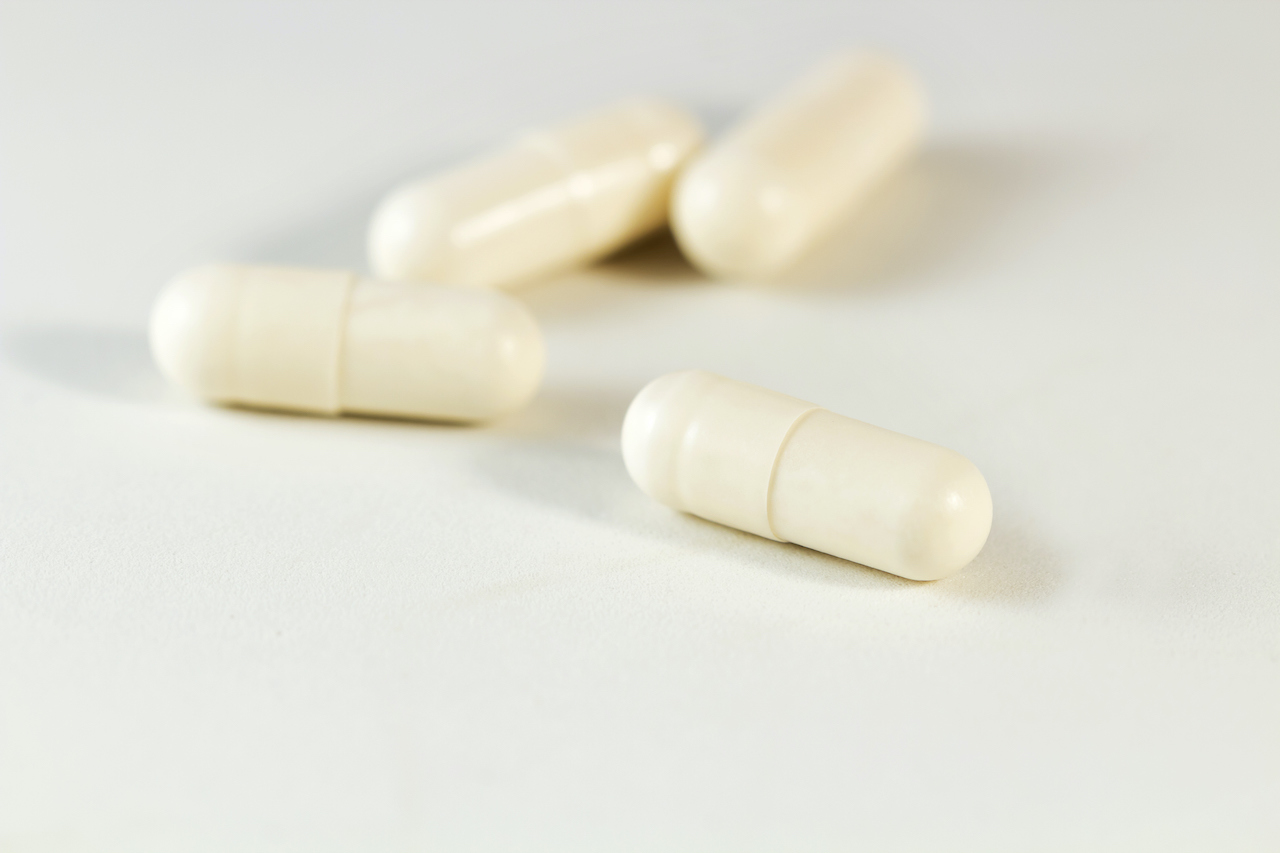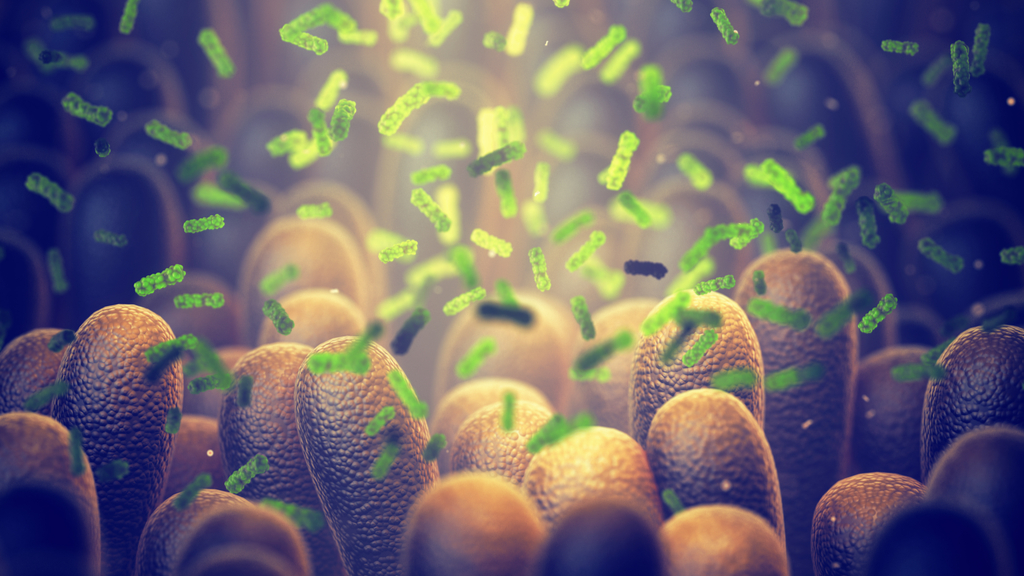What are probiotics and how do they work?
We look at whether probiotics can improve physical and emotional health and if so, how

Many of us have heard of probiotics but don’t necessarily know what we should be doing with them, or how they work.
First up – probiotics are good for gut health, but why is that important? Your gut isn’t just the place where food goes, it’s actually at the center of all body systems and its health can influence everything including immunity, mood, physical and emotional health.
In fact the gut microbiome and the brain are in cahoots – constantly talking and firing messages back and forth. This is a process known as the gut-brain axis.
“When our digestive system is well, our central nervous system is happy too,” says nutritional therapist Carola Becker. “Probiotics are live bacteria that can help to improve your gut flora, and you can find them in fermented foods like plain yogurt, kimchi and sauerkraut, or take them as a supplement.”
In fact, taking the best probiotics for just three weeks could help to restore your microbiome and reduce levels of depression, stress and anxiety, according to a study published in the Clinics and Practice Journal. Participants also showed an overall happier mood, more energy and less brain fog. There are also some tangible benefits of probiotics for men.
Here, we’ll explain more about the gut, how probiotics can keep it functioning efficiently, and why this is crucial for our overall health and wellbeing.
What are probiotics?
The World Health Organization defines probiotics as ‘live microorganisms that when administered in adequate amounts confer a health benefit on the host.’ A simpler way of putting it is that probiotics are live bacteria that are good for you – especially your digestive system.
As we've already heard, they can play a critical role in how healthy your gut microbiome is – the collection of billions of bacteria, with up to 500 different living species in our digestive tract.
You can read more about the gut-brain-axis and the role the gut microbiome has in our mental health.
- Related: Do probiotics help IBS?
- Related: Probiotics for Eczema: do they really work?

“While some bacteria can be harmful to our health, many others are extremely beneficial, and maintaining a harmonious balance between the ‘good’ and ‘bad’ bacteria is crucial for our overall health,” says Ami Sheward, a nutritional therapist specializing in gut and digestive health.
Our gut bacteria develop from birth, and it not only helps with the digestion and absorption of nutrients from what we eat, but also provides energy and produces vitamins.
“It is also important for immunological health, the removal of pollutants from the body, and our emotional wellbeing,” adds Sheward. “A variety of things have an impact on our gut microorganisms – sugar and refined carbohydrate diets, alcohol, antibiotics, stress, pollution, and toxins can all disrupt the equilibrium.”
She adds that dysbiosis – when gut bacteria become imbalanced - occurs when there are more of the bad bacteria than the good. “This causes something called ‘immunological dysregulation’, essentially knocking your immune system out of whack and making you more prone to colds and infections, reducing nutrient absorption, and decreasing your ability to synthesize some energy-boosting B vitamins, all of which can lead to fatigue,” she says.
“The good news is that there are things we can do to enhance the environment for good bacteria to thrive, including dietary changes and taking probiotic supplements.”
- Related: Probiotics vs digestive enzymes
Types of probiotic
Two of the most common and widely researched probiotics are Bifidobacteria and Lactobacillus.
Bifidobacteria are bacterial probiotics often used in foods and supplements. They're thought to support immunity by helping to break down lactose into nutrients that the body can absorb, and also limit the growth of bad or harmful bacteria in the intestine.
Lactase, the enzyme that breaks down lactose, or milk sugar, is produced by Lactobacillus. Lactic acid is also produced by these bacteria. Lactic acid helps to control bad bacteria. It also acts as a source of muscular fuel and aids mineral absorption. Lactobacillus bacteria can naturally be found in the mouth, vaginal canal and small intestine.
“You may already be eating foods that contain probiotics in your everyday diet,” says Sheward. “Fermented foods, in particular yogurt, sauerkraut, miso, kimchi, cheese and tempeh, contain a variety of beneficial microorganisms. Fermented drinks such as kombucha – fermented tea – and kefir – fermented dairy drink – can also help you to get more probiotics in your diet.”
How do probiotics work?
Probiotics are made up of good bacteria that help to keep the body healthy and working efficiently. This beneficial bacteria can fight off bad bacteria when you have too much of it, helping to power up the immune system to get you well again.
“When ingested, the bacteria in probiotics ‘compete’ against potentially pathogenic microbes in the gastrointestinal tract to try and inhibit their harmful effects,” explains Functional Medicine Practitioner Danny Ly. “They can do this by producing anti-microbial substances that can kill off opportunistic pathogens and by binding onto viruses themselves. That’s why having a wide and varied number of ‘good bugs’ or bacteria in the gut has also been shown to dampen allergies and sensitivities, support the immune system, decrease inflammation, enhance nutrient absorption and much more.”
What are the benefits of probiotics?
Probiotics can have many benefits. “They have been shown to improve intestinal health, the immune system and cognitive function, among other things,” says Sheward. “Constipation, blood pressure, skin health, and other issues have all been linked to them in studies too.”
A lot of research has also been done into probiotics and how they might be used to treat and manage Irritable Bowel Syndrome (IBS), a common condition that affects the digestive system, with symptoms including stomach cramps, bloating, diarrhea and constipation.

“Changes in the gut microbiome have been linked to IBS symptoms,” Sheward says. “Studies found that people with IBS, for example, have fewer levels of Lactobacillus and Bifidobacterium in their stomachs and higher levels of pathogenic Streptococcus, E. coli, and Clostridium in their guts.”
Gut expert and nutritionist Hannah Braye also adds that most people know probiotics are good for the gut, but many don’t realize that they are also a great way to support the immune system. “Over 70% of which resides in the lining of the gut and is supported by a diverse community of bacteria,” she says. “What’s more, good gut bacteria has been shown to influence both the ‘innate’ immune system, the one we’re born with, and the ‘acquired’ immune system, the one we develop over time.”
Think of your innate immune system a bit like a paramedic – these clever immune cells are first on the scene of an injury or infection. They try to limit the damage but aren’t particularly specialized in their response.
“Whereas your acquired immune system is more like a hospital consultant,” she adds “It is highly specialized, tailoring its response to the specific threat. It is able to do this by remembering contact it has had with various different viruses, bacteria and other microbes in the past. These two immune systems work together to protect you from disease-causing bacteria and also keep immune responses regulated and in balance. A probiotic supplement can help to shorten the lifespan and severity of an illness.”
Sign up for the Live Science daily newsletter now
Get the world’s most fascinating discoveries delivered straight to your inbox.

Maddy Biddulph is a freelance health and fitness journalist with over 26 years of experience working for consumer media in the US and UK. As a Level 3 personal trainer and weight loss advisor she is used to trying out and reviewing the latest health and fitness products. At Maddy Biddulph Personal Training, she runs one-to-one and small group sessions, as well as group exercise classes. She specializes in mobility work with seniors and runs regular chair workouts in her hometown of Oxford.










